A Short History of the Squier Bullet Guitar
By Dennis David
The sale of Japanese guitars was beginning to affect the bottom line at CBS Musical Instruments in 1980 and the management team
consisting of John McLaren, William "Bill" Schultz, and Dan Smith, whom all worked previously at Yamaha Musical Instruments,
agreed to move some of Fender's manufacturing to Korea; however, the idea was quickly abandoned because of the poor workmanship
across the seas.
Dan Smith is quoted in the guitar book, "The Fender Book: A Complete History of Fender Electric Guitars", by Tony Bacon and Paul
Day as saying, "We were brought into kind of turn the reputation of Fender around, and to get it so it was making money again. It
was starting to lose money, and at that point in time everybody hated Fender. We thought we knew how bad it was. We took for
granted that they could make Stratocasters and Telecasters the way they used to make them, but we were wrong. So many things had
changed in the plant."

The new management began to approach the dire situation in two ways, first off, they would start by improving the quality control
in their American plant by upgrading the factory's facilities with more modern machinery and they would start competing with the
inexpensive foreign copies of their guitars from Japan by manufacturing some of their own guitars in Japan.
Gibson had already moved their production of their Epiphone line from Kalamazoo, Michigan to overseas. And Fender would start
building their iconic guitars in Japan; however, unlike Gibson they would market their Japanese line to the domestic Japanese
market and compete with Japanese copies.
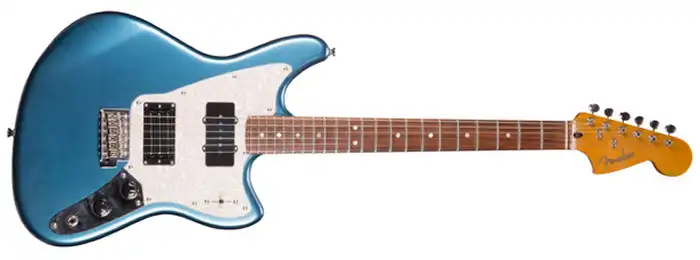
Fender's guitar designer John Page designed an instrument that would save on production cost in America while delivering a decent
guitar. Page designed and patented an alloy pickguard for the Bullet series of guitars which served as the pickguard bridge
saddles and electronic shielding all in one component: speeding up and making production more efficient.
After the initial production of American made Fender Bullets from 1981 through 1983, CBS Musical Instruments needed an even more
cost saving way to produce instruments and compete with the cheap overseas instruments flooding into the American market, without
damaging the Fender Brand; and production was moved to U.S. factories located in Korea.
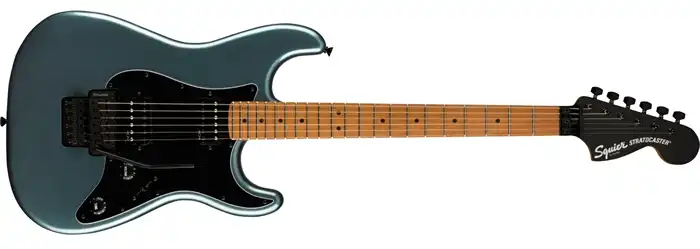
Fender began marketing their inexpensive guitars under the Squier brand, a brand they acquired in 1960 when they purchased the
Squier String Company, and thus protecting the Fender brand from being associated with inexpensive products.
Fender began manufacturing their budget and student instruments in Japan under the Squier name after they closed their Fullerton,
California factory and moved production to Japan where the Japanese were originally building copies of their iconic Fender guitars.
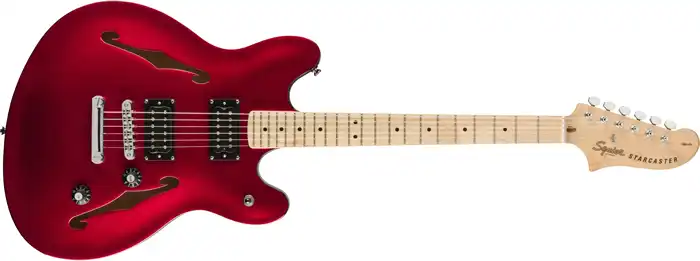
In March of 1982 Fender Japan Ltd. was formed; and in 1983 instruments were being produced by FujiGen Gakki the makers of Ibanez
guitars. There were doubts back in the states on whether Japanese companies could manufacture quality guitars in Japan. Those
doubts disappeared once the instruments arrived back in California.
Marketing executive for CBS Instruments, Dan Smith was quoted in "The Fender Book: A Complete History of Fender Electric Guitars",
as saying, "Everybody came up to inspect them and the guys almost cried, because the Japanese product was so good - it was what
we had been having a hell of a time trying to do." The quality of instruments made in Japan equaled or even succeeded the
American made instruments.

Regardless of Fender's success with Fender Japan, in 1988 Fender began manufacturing "Bullet" guitars in Korea, because of their
lower labor costs. There were also two versions of a Bullet basses made in Korea, a long and a short scale instrument. The Bullet
was targeted at the student market; a market Fender accommodated starting back in the 1950s with the Duo-Sonic electric guitars,
and in the 1960s and 1970s with the Mustang and Musicmaster electric guitars.
And today Fender Bullet guitars are still being manufactured overseas on computer aided machinery where labor costs are low and
machine quality is exceptional; leading to well-made guitars with cheaper quality hardware, which keeps cost in reasonable ranges
students and beginning guitar players can afford.
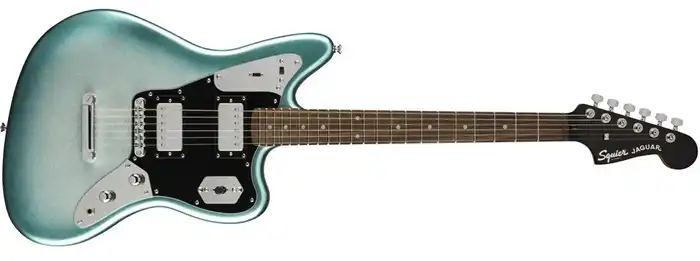
Add Comment
Insert Bullet List
Please enter at least one item.
Item:
Item:
Item:
Item:
Item:
Insert Numeric List
Please enter at least one item.
Item:
Item:
Item:
Item:
Item:
Insert Link
Please enter the link of the website
Optionally you can add display text
Insert Email
Please enter the email address
Optionally add any display text
Insert Image
Please enter the link of the image
Insert YouTube Video
Please enter the link of the video
Image Upload
Privacy Policy
This policy contains information about your privacy. By posting, you are declaring that you understand this policy:
- Your name, rating, website address, town, country, state and comment will be publicly displayed if entered.
- Aside from the data entered into these form fields, other stored data about your comment will include:
- Your IP address (not displayed)
- The time/date of your submission (displayed)
- Your email address will not be shared. It is collected for only two reasons:
- Administrative purposes, should a need to contact you arise.
- To inform you of new comments, should you subscribe to receive notifications.
- A cookie may be set on your computer. This is used to remember your inputs. It will expire by itself.
This policy is subject to change at any time and without notice.
Terms and Conditions
These terms and conditions contain rules about posting comments. By submitting a comment, you are declaring that you agree with these rules:
- Although the administrator will attempt to moderate comments, it is impossible for every comment to have been moderated at any given time.
- You acknowledge that all comments express the views and opinions of the original author and not those of the administrator.
- You agree not to post any material which is knowingly false, obscene, hateful, threatening, harassing or invasive of a person's privacy.
- The administrator has the right to edit, move or remove any comment for any reason and without notice.
Failure to comply with these rules may result in being banned from submitting further comments.
These terms and conditions are subject to change at any time and without notice.
{"commentics_url":"\/\/skoukor.com\/cmt\/","page_id":348,"enabled_country":true,"country_id":0,"enabled_state":true,"state_id":0,"enabled_upload":true,"maximum_upload_amount":3,"maximum_upload_size":5,"maximum_upload_total":5,"captcha":false,"captcha_url":"","cmtx_wait_for_comment":"cmtx_wait_for_comment","lang_error_file_num":"A maximum of %d files are allowed to be uploaded","lang_error_file_size":"Please upload files no bigger than %.1f MB in size","lang_error_file_total":"The total size of all files must be less than %.1f MB","lang_error_file_type":"Only image file types are allowed to be uploaded","lang_text_loading":"Loading ..","lang_placeholder_country":"Country","lang_placeholder_state":"State","lang_text_country_first":"Please select a country first","lang_button_submit":"Add Comment","lang_button_preview":"Preview","lang_button_remove":"Remove","lang_button_processing":"Please Wait.."}
{"commentics_url":"\/\/skoukor.com\/cmt\/","language":"english"}
|
Copyright © Skoukor Music 2025
|
||

|
||
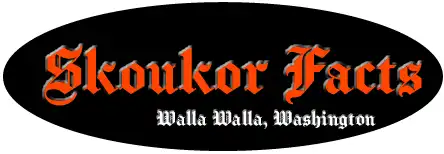

Comments